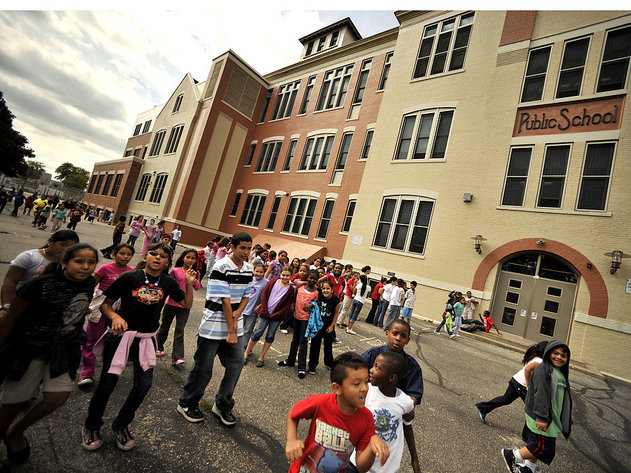As students approach the midpoint of another school year, there is a central conversation among parents and guardians regarding the quality of education their children receive at school. Part of those conversations should also focus on afterschool care, which is a prime opportunity for student enrichment.
Each afternoon during the school year, millions of students spend anywhere from an hour to 2.5 hours in an afterschool program. For many Milwaukee children those are often school-based afterschool camps and CLCs run by Milwaukee Recreation, as well as programs run by groups like the Boys & Girls Clubs, COA and the YMCA.
However, there are still more than 15 million youth left unsupervised in the afternoon, and parents should look to enroll their students in quality afterschool programs. The most effective programs nurture the whole child, and can offer impressive gains in cognitive, social-emotional and physical development – essential for creating the best opportunity for children to thrive.
This school year, the Y is asking parents and guardians to take a closer look at what their afterschool care offers to ensure year-long success for their children. The Y suggests that parents and guardians ask the following six questions when determining the best afterschool program.
Here are some questions to help you determine the best program for your child:
- Are there opportunities for continued learning? Afterschool programs can be a great way to enhance your child’s learning opportunities outside of the classroom. In addition to assistance with homework completion and tutoring, today’s progressive afterschool programs provide opportunities for children to participate in enriching activities focused on STEM (Science, Technology, Engineering, Math), and arts and humanities.
- Does the program encourage a healthy and balanced lifestyle? Your child's health is important to maintaining focus and engagement in school. Look for an afterschool program that offers nutritious snacks and encourages the U.S. Department of Health and Human Services’ recommended 60 minutes of daily physical activity.
- Does the program promote healthy social skills? Social skills help children build a sense of self, and further develop and manage their emotions. Afterschool activities should continue to teach children how to work together in an inclusive, welcoming and respectful environment that provides additional opportunities to develop their social skills.
- Does the program endorse active learning? Step into an afterschool program that encourages engaged learning and you’ll see inquisitive kids working side by side with staff members on a variety of enriching projects.
- Will your child be safe in the program? Make sure to ask about past incidents and find out how they were handled. Also, find out what policies and procedures are in place to prevent incidents, such as protocol for who has access to the students and who can pick up students.
- What are the staff’s qualifications? Make sure the staff meets or exceeds state regulations and certifications, and that they have passed background checks. The Y works with all its certified teachers to make sure its afterschool programs enhance and align with strong academic content. Take time to observe staff in action. How does the staff interact with children? Do they engage in learning activities?
The best afterschool programs should welcome your questions and provide opportunities for you to observe and check in on your child’s progress.







